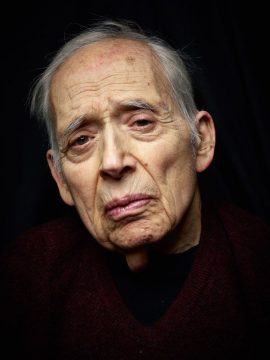Tanner Greer at The Scholar’s Stage:

Harold Bloom is dead. His death has prompted one final, staggered brawl between the exhausted ranks who have spent away their strength with three decades of culture warring. My personal assessment of Bloom is that he was an excellent salesman and a stupendous reader, but an uninspired critic. With the concept of a ‘canon’ or a ‘classic’ I have no argument. It seems obvious to me that some works are better than others and more obvious still that if a book is still being read several centuries after it was written it is likely one of those better works–or barring that, a work whose intellectual or artistic legacy makes it a necessary piece of the larger puzzle. The trouble with Bloom was not his elephant love for the canon, but his inability to articulate anything but this passion (and disgust with those who sought to defile it). The truth is that Bloom adds nothing to the great works he champions. This weakness is seen most clearly in his many volumes on Shakespeare; in less exaggerated form it mars the judgments Bloom throws around in The Western Canon or Genius.
Bloom declares where he should argue, emotes where he should analyze, and effuses where he should unveil. Bloom deplored young Hal to the center of his bones; his love for Falstaff soaked through his soul down into his toes. You’ll discover this within a minute of reading any of Bloom’s criticism of the Bard.
More here.
